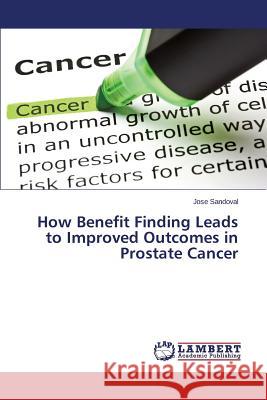How Benefit Finding Leads to Improved Outcomes in Prostate Cancer » książka
How Benefit Finding Leads to Improved Outcomes in Prostate Cancer
ISBN-13: 9783659639357 / Angielski / Miękka / 2014 / 112 str.
The present study used hierarchical linear modeling to examine correlates of benefit finding at study entry and individuals trajectories of benefit finding over time among men treated for early stage prostate cancer (n = 261). Correlates associated with benefit finding at study entry included intrinsic religiosity, perceived social support, perceived present control, approach coping, use of emotional support, avoidant coping, and religious coping. Within-persons changes in optimism, perceived social support, perceived present control, approach coping, use of emotional support, avoidant coping, and religious coping were associated with within-persons changes in benefit finding. The association between the trajectories of perceived social support and benefit finding was partially mediated by approach coping and use of emotional support. The findings suggest that coping responses may represent an important mechanism through which changes in benefit finding occur.











